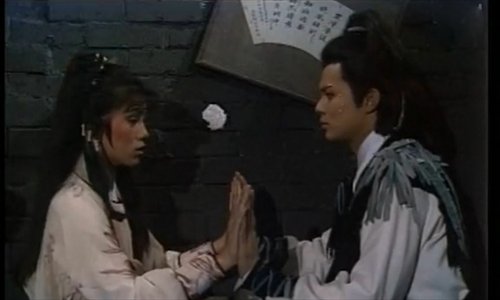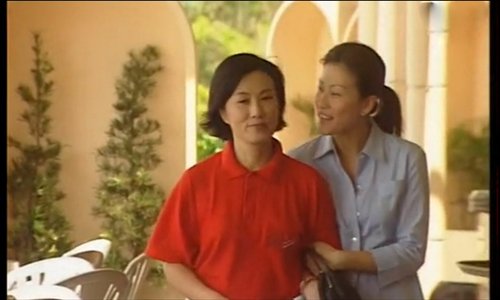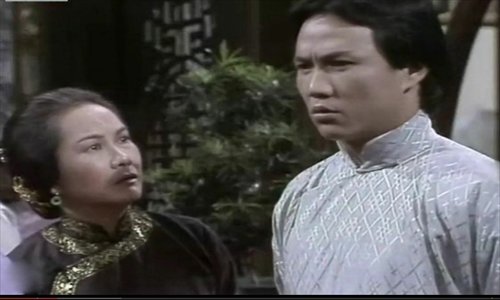Hong Kong dramas dethroned
Source:The Time Weekly - Global Times Published: 2013-11-7 18:38:01



Scenes from Hong Kong TV's heyday (from top): The Legend of the Condor Heroes, At the Threshold of an Era and The Legendary Fok
The Hong Kong TV industry has been in the news not for its popularity but rather its decline. Hong Kong's TV dramas have long been a symbol of Hong Kong's culture and economic prosperity. From the 1960s on, the industry enjoyed four decades of sizzling stars and innovative ideas promoted by Hong Kong TV stations like Television Broadcasts (TVB). The industry stood as a standard for all of Asia.Yet, all these are now statements in the past tense. Along with the dwindling viewership, various critics are mourning the fall of the Hong Kong TV industry.
The glory days
Like its economic development, the TV industry in Hong Kong experienced a golden age in the 1980s. Asia Television (ATV) and TVB are the two biggest and most widely-known free-to-watch stations in Hong Kong. The two dominated the market after Commercial Television (CTV) shuttered in 1978.
Founded in 1957, ATV is the longest-established TV station among the three. TVB was founded in 1967 by Hong Kong media mogul Run Run Shaw. Fierce competition between the two allowed the industry to flourish.
Immigrating to Hong Kong with his whole family in the early 1980s, Li Zhi (pseudonym), like many Hong Kong citizens, grew up watching local programs. Every evening as a child, he would sit in front of the TV with his parents and switch on TVB Jade.
Li can still recall some of the scenes from the 1981 version of Legendary Fok, a 20-episode drama produced by ATV.
They would curse a little bit whenever there was a hokey plot in the soap operas.
"When we first moved to Hong Kong, we watched ATV more. There were not many choices then, but many of the dramas produced by the two TV stations were very good," Li said.
Compared with the dull, poorly-produced works of the Chinese mainland then, shows from Hong Kong sparkled and were widely watched, especially by young people. For example, the 1983 version of The Legend of the Condor Heroes is still a good memory for many Chinese mainland audiences now in their 30s and 40s.
A number of talented actors and actresses were brought up during this time as well. Household names like Chow Yun-Fat, Carina Lau and Andy Lau were all being trained at that time. These stars later contributed a great deal to the Hong Kong TV and film industry.
Hackneyed and forsaken
The glory days lasted until the 1990s, though there were already signs of decline in the late 1980s and early 1990s.
"You can see from the statistics, the audience rating of Hong Kong TV programs keeps going downhill from the late 1980s on," Anthony Y. H. Fung, director of the School of Journalism and Communication at the Chinese University of Hong Kong, told The Time Weekly.
But the dwindling appeal really became apparent a decade or so ago, when South Korean and Taiwanese dramas swept the Chinese mainland.
In research conducted by Hong Kong's Office of the Communications Authority earlier this year, ATV was criticized for too often broadcasting reruns of old dramas and biased news reports.
Li's first reaction to this buzz around ATV was, "Is there anyone who still watches?"
TVB has been condemned for formulaic dramas. Some netizens deride the so-called "TVB styles." For example, lines like, "As a human, the most important thing is to be happy," and "Why not have some noodle?" were once heartwarming in the old days, but after being widely used for several decades, they have become jokes.
"TV markets around the world are shrinking, except for the places where the Chinese are living, because the Chinese love to watch TV dramas," Chow Yuk-ming, a renowned scriptwriter who worked at TVB for nearly 20 years, told The Time Weekly. "The frequent turnover at ATV made TVB the monopoly over the recent two decades. [In a market with little competition,] quality is guaranteed to go down."
Chow has created a number of TV dramas with both high ratings and critical acclaim, such as Cold Blood Warm Heart (1996) and At the Threshold of an Era (1999).
In 2012, he left TVB and moved north to the Chinese mainland with a number of others in the TV industry, though he said there was "no special reason."
"I wanted a change in my working environment," he said.
TVB is not only losing its drama makers, but its stars as well. The mainland TV industry is attracting numbers of Hong Kong actors and actresses.
As The Time Weekly described, TVB is facing the biggest shortage of stars in 40 years.
Effect on the film industry
The downfall of Hong Kong TV was accompanied almost simultaneously by an ebb in the film industry.
Li Qing (pseudonym), a student at the Hong Kong Academy for Performing Arts, told The Time Weekly that though 90 percent of the academy's students ultimately go into the film industry, they all know TV and film industries have their ups and downs.
Looking back over the past 40 years, it is not difficult to see the supporting function Hong Kong's TV industry has played for its film industry.
"Almost all the scriptwriters and directors of the early Hong Kong film industry came from TV," Fung said. "Therefore the death of the TV industry indicates an end to the film industry."
While many of the veterans move northward, it is difficult for young beginners to follow the same way, Li added.
"The best way to train the young people is with the TV shows," Li said. "A film cannot provide the same work experience."
The Time Weekly - Global Times